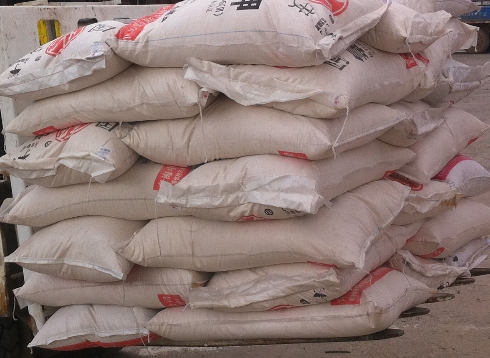 Chemical fertilizers play a vital role in modern agriculture by providing essential nutrients to crops. There are six main types, each designed to supply specific nutrients and meet different soil and crop requirements.
(1) **Nitrogen Fertilizers**: These are the most commonly used type, as nitrogen is crucial for plant growth and leaf development. Common examples include ammonium bicarbonate, urea, ammonium nitrate, ammonium chloride, and ammonium sulfate. They help promote rapid growth and improve crop yields.
(2) **Phosphorus Fertilizers**: Phosphorus is essential for root development, flowering, and fruiting. The main types include ordinary calcium phosphate, calcium magnesium phosphate, and others. These fertilizers support strong plant structures and energy transfer within the plant.
(3) **Potassium Fertilizers**: Potassium helps plants resist diseases, improves water regulation, and enhances overall resilience. While not as widely used as nitrogen or phosphorus fertilizers, they are still important. Common varieties include potassium chloride, potassium sulfate, and potassium nitrate.
(4) **Compound and Mixed Fertilizers**: These fertilizers contain more than one nutrient. Binary compound fertilizers usually have two elements (such as N and P), while ternary ones include all three: nitrogen, phosphorus, and potassium (NPK). Mixed fertilizers are often preferred because they offer balanced nutrition and can be tailored to specific soil conditions.
(5) **Micronutrient and Secondary Nutrient Fertilizers**: These provide smaller amounts of essential nutrients that plants need in trace amounts. Micronutrients include boron, zinc, iron, molybdenum, manganese, and copper, while secondary nutrients like calcium, magnesium, and sulfur are also important for certain crops.
(6) **Specialized Fertilizers**: Some fertilizers are developed for specific crops or conditions. For example, silicon-based fertilizers made from steel slag are used for rice, cobalt fertilizers benefit legumes, and rare earth elements are sometimes applied to sugarcane and fruits to enhance growth and quality.
By understanding these different types of fertilizers, farmers can make informed decisions to optimize their crop production and maintain soil health. Proper use of fertilizers ensures sustainable agricultural practices and maximizes yield without overloading the environment.
Chemical fertilizers play a vital role in modern agriculture by providing essential nutrients to crops. There are six main types, each designed to supply specific nutrients and meet different soil and crop requirements.
(1) **Nitrogen Fertilizers**: These are the most commonly used type, as nitrogen is crucial for plant growth and leaf development. Common examples include ammonium bicarbonate, urea, ammonium nitrate, ammonium chloride, and ammonium sulfate. They help promote rapid growth and improve crop yields.
(2) **Phosphorus Fertilizers**: Phosphorus is essential for root development, flowering, and fruiting. The main types include ordinary calcium phosphate, calcium magnesium phosphate, and others. These fertilizers support strong plant structures and energy transfer within the plant.
(3) **Potassium Fertilizers**: Potassium helps plants resist diseases, improves water regulation, and enhances overall resilience. While not as widely used as nitrogen or phosphorus fertilizers, they are still important. Common varieties include potassium chloride, potassium sulfate, and potassium nitrate.
(4) **Compound and Mixed Fertilizers**: These fertilizers contain more than one nutrient. Binary compound fertilizers usually have two elements (such as N and P), while ternary ones include all three: nitrogen, phosphorus, and potassium (NPK). Mixed fertilizers are often preferred because they offer balanced nutrition and can be tailored to specific soil conditions.
(5) **Micronutrient and Secondary Nutrient Fertilizers**: These provide smaller amounts of essential nutrients that plants need in trace amounts. Micronutrients include boron, zinc, iron, molybdenum, manganese, and copper, while secondary nutrients like calcium, magnesium, and sulfur are also important for certain crops.
(6) **Specialized Fertilizers**: Some fertilizers are developed for specific crops or conditions. For example, silicon-based fertilizers made from steel slag are used for rice, cobalt fertilizers benefit legumes, and rare earth elements are sometimes applied to sugarcane and fruits to enhance growth and quality.
By understanding these different types of fertilizers, farmers can make informed decisions to optimize their crop production and maintain soil health. Proper use of fertilizers ensures sustainable agricultural practices and maximizes yield without overloading the environment.Floodlights,Outdoor Floodlight, Led Floodlight,Solar Floodlight
Jiangsu chuanglv Transportation Facilities Co., Ltd , https://www.clsolarlights.com